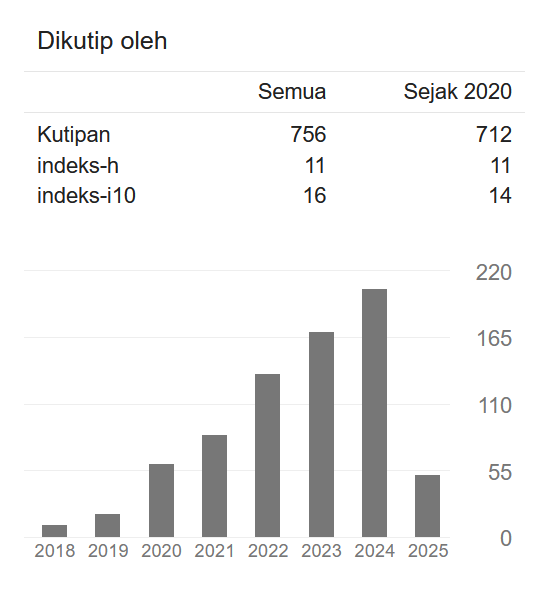Toron Tana Tradition In Bangkalan: Between The Priyayi And The Common People
DOI:
https://doi.org/10.19109/medinate.v21i1.28542Keywords:
Toron Tana, Madura Culture, Social Structure, Structural FunctionalismAbstract
This study aims to examine the symbolic meaning and differences in the implementation of the Toron Tana tradition in Madurese society, especially in Bangkalan, by highlighting the differences between the priyayi and ordinary people. The scope of the study includes the symbolic aspects of rituals, the social structure of the tradition actors, and the function of tradition in maintaining the identity and social cohesion of the community. The method used in this study is a qualitative method with a descriptive approach. Data were obtained through interviews with local people, as well as literature studies of relevant references. Data analysis used Émile Durkheim's structural functionalism perspective to understand the social function of the Toron Tana tradition in the context of Madurese society. The results of the study show that although there are differences in the form and excitement of the implementation between the priyayi and ordinary people, the core meaning of the tradition is maintained. This tradition functions as a medium for transmitting cultural and spiritual values, strengthening social solidarity, and reproducing social structures continuously. The conclusion of this study confirms that the Toron Tana tradition is not only a cultural heritage, but also an important instrument in maintaining social integration and the collective identity of the Madurese community amidst the dynamics of changing times.
References
Beck, L., & Grayot, J. D. (2021). New functionalism and the social and behavioral sciences. European Journal for Philosophy of Science, 11(4), 103. https://doi.org/10.1007/s13194-021-00420-2
Belyanskaya. (2024). Traditional Family Values As A Factor In Formation Of A Cild’s Socio-Cultural Identity. 113–119. https://doi.org/10.58168/BEING2024_113-119
Dhofier, Z. (2011). Tradisi pesantren: Studi pandangan hidup kyai dan visinya mengenai masa depan Indonesia. LP3ES.
Firnando, R., & Zahara, S. (2023). Nilai – Nilai Tradisi Turun Tanah Perspektif Masyarakat Di Desa Pangkalan Nyirih. Al-Amin: Jurnal Ilmu Pendidikan Dan Sosial Humaniora, 1 No.1.
Firnando, R., & Zahara, S. (2023). Nilai – Nilai Tradisi Turun Tanah Perspektif Masyarakat Di Desa Pangkalan Nyirih Kecamatan Rupat Kabupaten Bengkalis. Al-Amin: Jurnal Ilmu Pendidikan Dan Sosial Humaniora, 1(1), Article 1. https://doi.org/10.53398/alamin.v1i1.235
Izadi, A., Mohammadi ,Mahmoud, Nasekhian ,Shahriayar, & and Memar, S. (2020). Structural Functionalism, Social Sustainability and the Historic Environment: A Role for Theory in Urban Regeneration. The Historic Environment: Policy & Practice, 11(2–3), 158–180. https://doi.org/10.1080/17567505.2020.1723248
Järvinen, M., & Meyer-Mik Nanna (Eds.). (2020). Qualitative analysis: Eight approaches for the social sciences. Sage Publications.
Kabanova. (2021). Https://nbpublish.com/library_read_article.php?id=35918. https://nbpublish.com/library_read_article.php?id=35918
Kartikasari, D. N., & Legowo, M. (2018). Konstruksi Masyarakat Tentang Tradisi Turun Tanah. Paradigma, 6(1). https://ejournal.unesa.ac.id/index.php/paradigma/article/view/24285
Kofi Amoah, S., & Ayim, A. (2018). The Theoretical Approaches of Durkheim, Parsons and Luhmann: Intra-traditional Differences, Interdependencies and Contradictions. Journal of Advocacy, Research and Education. https://oaji.net/articles/2020/1704-1600542791.pdf
Miftahul, M. (2017a). Adat Turun Tanah Bagi Suku Jawa Di Kota Palangka Raya Ditinjau Dari Prespektif Islam. Jurnal Studi Agama dan Masyarakat, 11(2), 191. https://doi.org/10.23971/jsam.v11i2.437
Miftahul, M. (2017b). Adat Turun Tanah Bagi Suku Jawa Di Kota Palangka Raya Ditinjau Dari Prespektif Islam. Jurnal Studi Agama dan Masyarakat, 11(2), 191. https://doi.org/10.23971/jsam.v11i2.437
Rahem, Z. (2020). Pendidikan Toleransi Antarsesama Pada Budaya Torontanabeji’masyaraat Madura. . . ISSN, 9.
Sholihah, H., Nabila, D. I., & Amalia, I. N. (2024). Makna Simbolik Dalam Tradisi Toron Tana Di Desa Payudan Daleman. Jurnal Ilmiah Multidisiplin Terpadu, 8(6), Article 6. https://oaj.jurnalhst.com/index.php/jimt/article/view/1356
Sholihah, H., Nabila, D. I., & Amalia, I. N. (2024). Makna Simbolik Dalam Tradisi Toron Tana Di Desa Payudan Daleman. Jurnal Ilmiah Multidisiplin Terpadu, 8(6), Article 6. https://oaj.jurnalhst.com/index.php/jimt/article/view/1356
Turner, V., Abrahams, R., & Harris, A. (2017). The Ritual Process: Structure and Anti-Structure. Routledge. https://doi.org/10.4324/9781315134666








